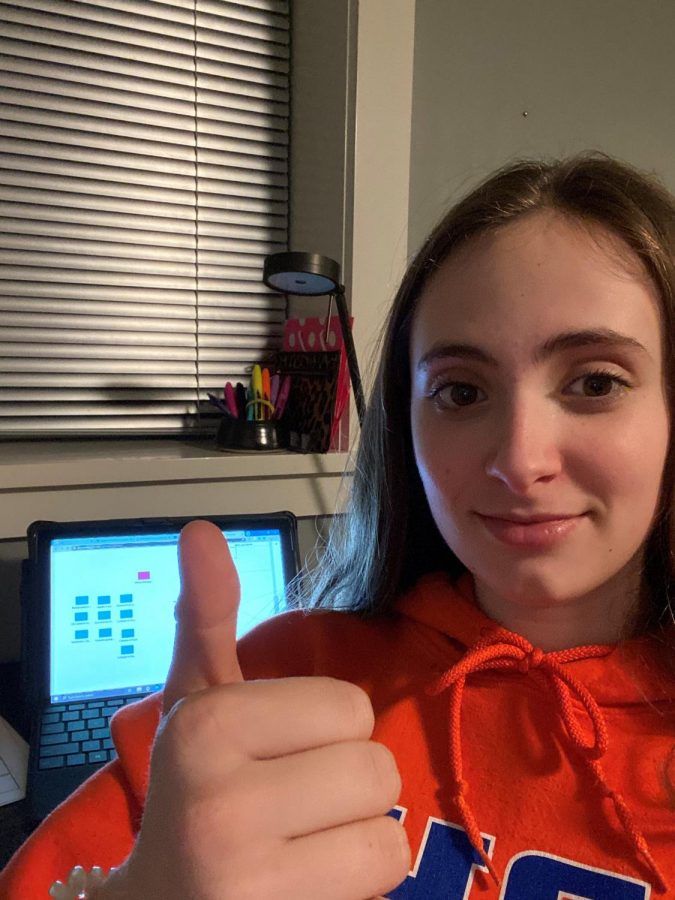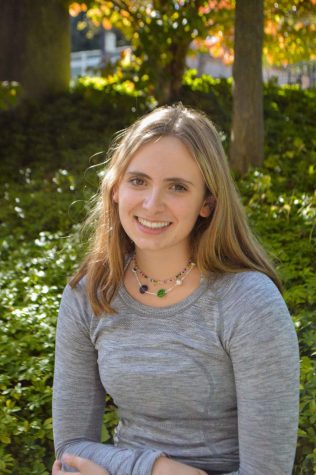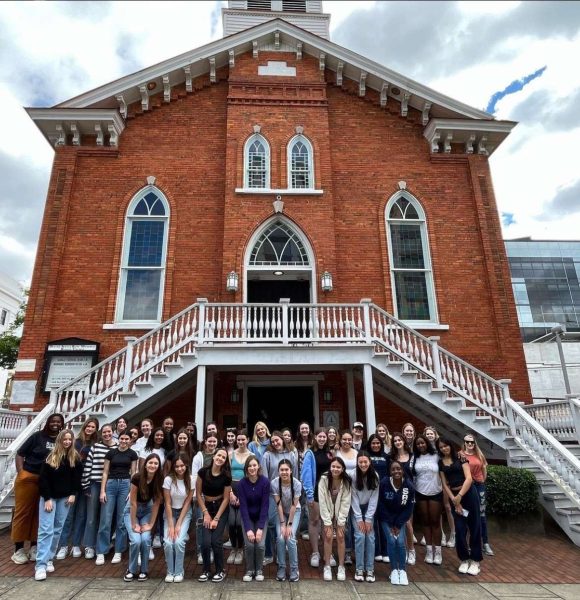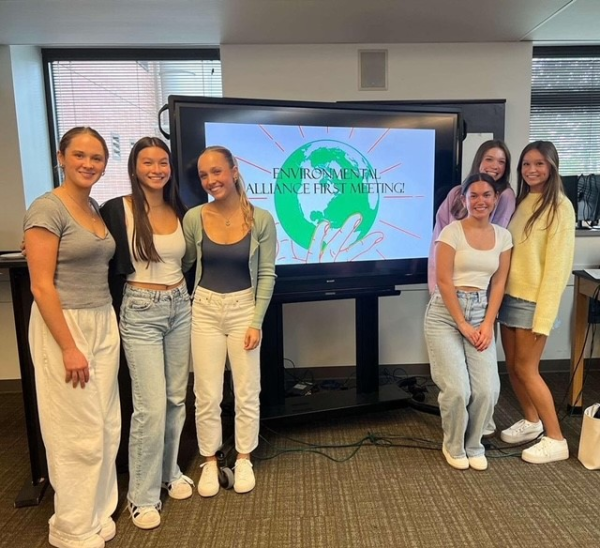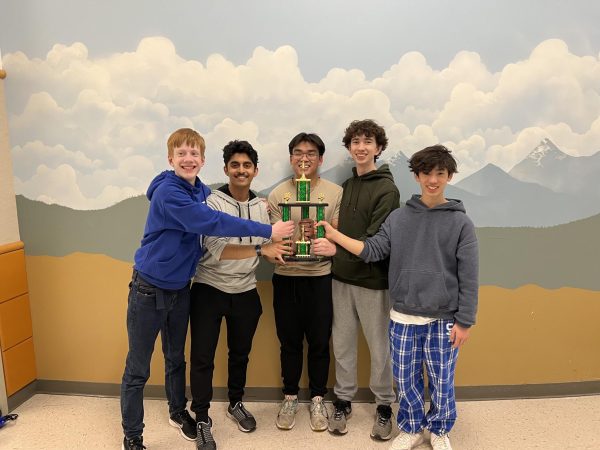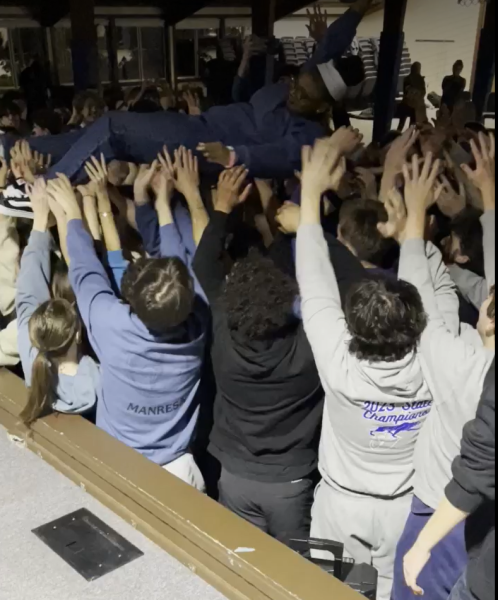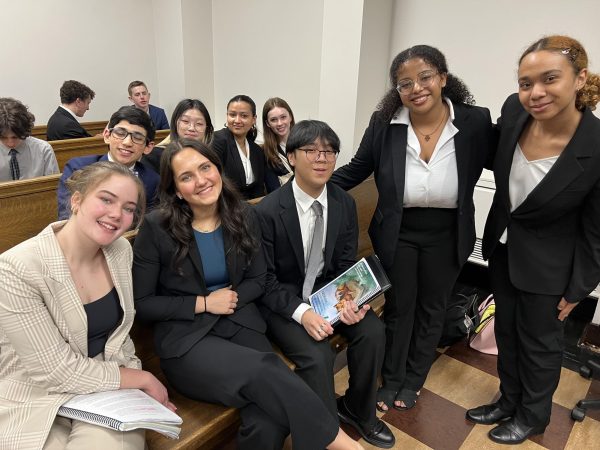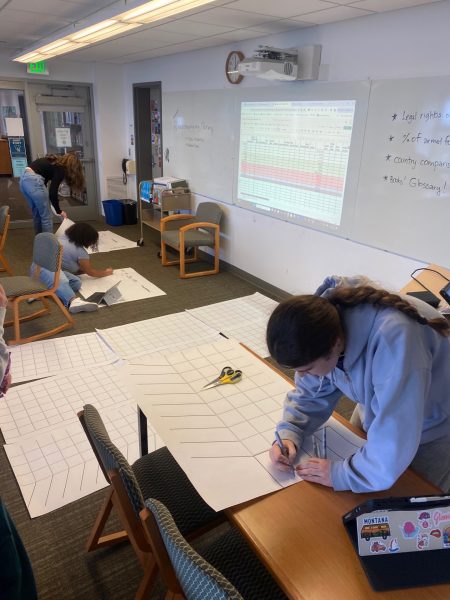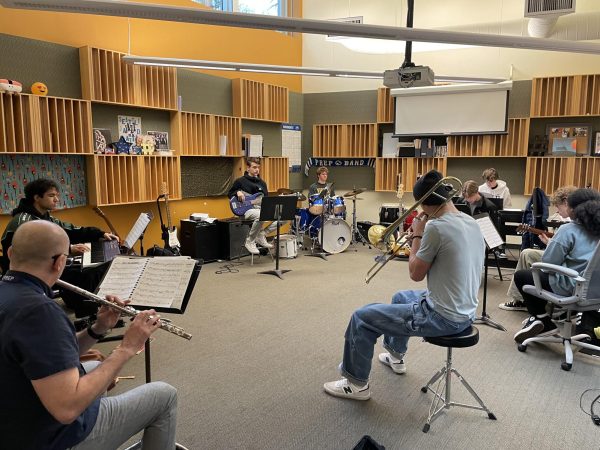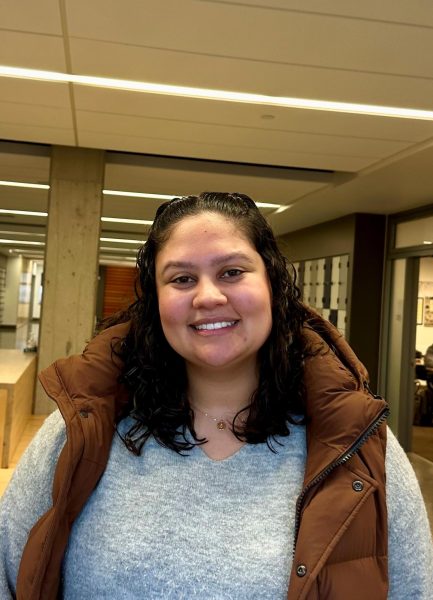Students Settle into COVID-19 DLDs
“I never knew I liked school this much.”
Abby Wilwerding ’22 poses while working on UN notecards on a DLD.
April 2, 2020
“I never knew I liked school this much,” said Blake Weld ‘21 as she reacted to Seattle Prep’s closure and jump into Digital Learning Days. But, love ‘em, or hate ‘em, DLDs are Prep’s new reality for the next 6 weeks. They are anticipated to last through April 24, or longer, if need be.
First enacted during the snow day school closures in the 2018-19 school year, DLDs have served a new purpose this year: allowing Prep to continue school through Governor Jay Inslee’s mandated six-week statewide school closure in response to COVID-19. This has been a huge adjustment for students, as the closure was only expected to last two weeks under Prep’s discretion until it was announced it would instead last six weeks under government order. Over the past few weeks, students have had time to adjust to this new normal and develop a DLD routine that they find works best for them.
On DLDs most people get up around ten in the morning and are able to have most of their work done by three or so, although it usually depends on whether it’s an A or B day. A popular routine Carolyn Kounellas ‘21 has adopted is “trying to get my homework done as early as I can, so I’m not procrastinating anymore like I used too.” Many students enjoy the flexibility of a DLD but struggle to not succumb to procrastination. Overall though, Kounellas compares a DLD to be “a lot easier than regular school, except I like regular school a lot more.”
Ryne Hays ‘20 remarked, “They haven’t been very difficult, and honestly I’ve been learning a lot and getting it done in a reasonable time.” Hays also commented on the workload as “honestly lighter [than normal classwork and homework], but I am a second-semester senior.”
Although, Weld said, “The DLD workload is hard to compare to the school workload because of how drastically different they are. Overall, DLD work is easier than school work because we do our school day and then do not have additional homework. But, they are very different. It is much harder to be motivated while working alone instead of in the classroom with your classmates and teacher.” This seems to be the general opinion among students, who express how the lack of face to face contact like we would receive in school has negatively impacted their learning.
This is especially true for classes conducting big projects, such as Model UN for sophomores, where guidance from Collegio teachers and librarians is essential. Abby Wilwerding ‘22 said, “It’s definitely harder to teach yourself and I think teachers have taken that into account. Being out of school has really messed up UN because we can’t meet with our committees and it’s just harder, in general, to do it on your own.”
It’s important to take time to relax and decompress in the midst of DLDs, as it is so easy to get stuck at a desk working for long hours at a time. Miles Trius ‘23 said he walks his dog to care for his mental health during this time. “Walking my dog gives both of us adequate exercise so I’d say it’s a perfect occupation while we’re at home. I also don’t really have to worry about social distancing either because if I come across somebody in my path, I can just cough and they practically run away.”
Weld has taken a more creative approach to her time off as she has “enjoyed having more free time to try hobbies I wish I had more time for such as cooking, crafting, and TRICK SHOTS!!” Weld claims she is taking her shot at being the next member of Dude Perfect, the famed YouTube trick shot channel with over 50 million subscribers.
Looking ahead, Wilwerding noted “In the next few weeks I’m going to try to get my DLD work done earlier and try to limit my screen time because it has definitely gone up a lot. Hopefully doing all of these will create a better routine for me. Also now that we will be doing synchronous learning I will be forced to stay on a schedule, which is good for me.”
In this time of uncertainty over how long the closure will last and whether sports seasons and social events will be canceled, students have faced a lot of stress and anxiety. Evelyn Clapp ‘23 has hope a greater appreciation for the Prep community will be fostered through this, “It’s sad to not see everyone everyday, but when we get back we will all have a new appreciation for one another.”

